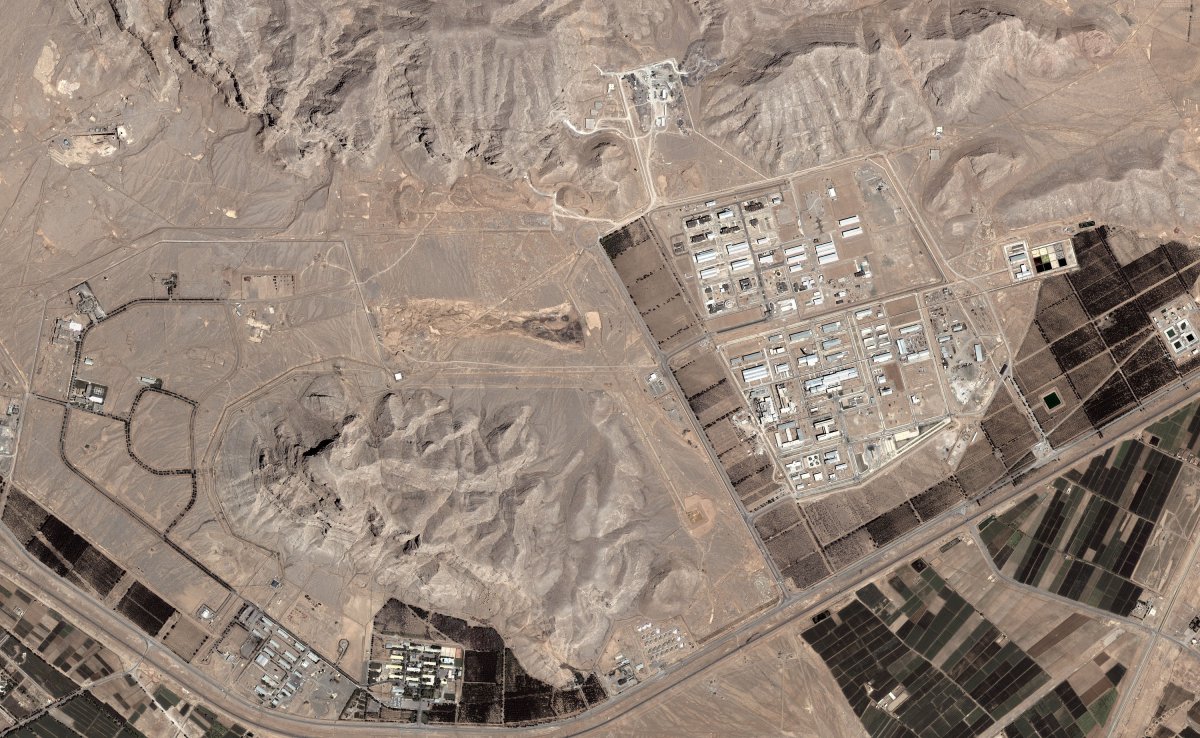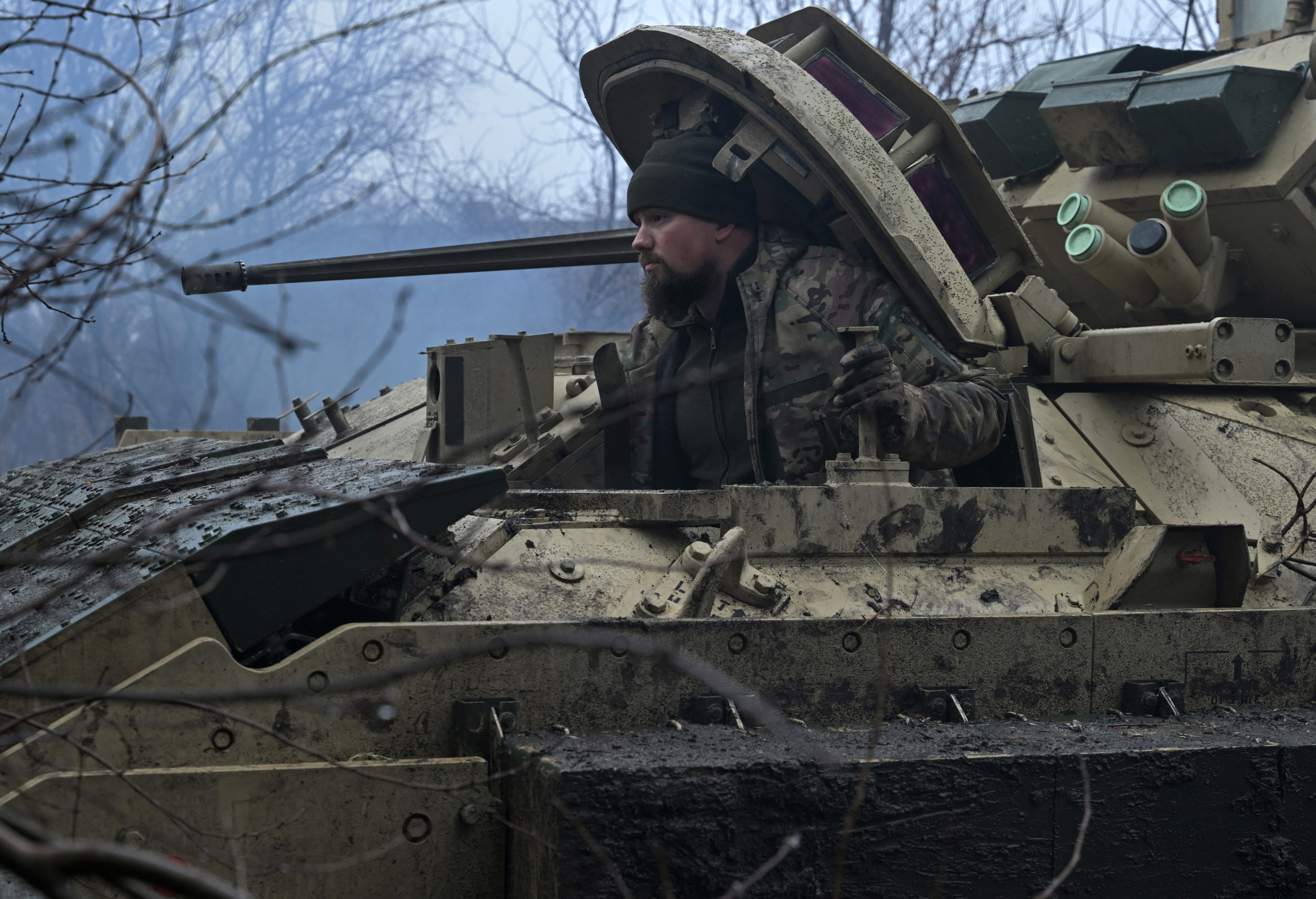Israel's retaliatory strikes inside Iran appeared to target nuclear sites on Friday, warning of increased dangers amid the ongoing shadow war between the two regional powers that threatens to spiral out of control.
Maps have now revealed the locations of Iran's nuclear sites after the strikes—described as "three explosions" by Iran's Far news agency—were heard near the city of Qahjavarestan, close to both the Isfahan airport and the Shekari army airbase.
Iran said it used air defense batteries to respond to several locations following the military action and confirmed that the nearby nuclear sites "were secure".
The tit-for-tat conflict now threatens to escalate throughout the wider region, warning of extreme dangers amid the military retaliation taking place so close to several major nuclear sites.
🚨🇮🇷 BREAKING: IDF STRIKES 9 SITES IN IRAN
— Mario Nawfal (@MarioNawfal) April 19, 2024
American officials report that 9 sites in Iran were targeted.
They assert that Israel has confirmed it will not target any nuclear facilities.
Source: Yediotnews https://t.co/UZGuMyRPwQ pic.twitter.com/thPN26rnBQ
Isfahan is home to several important Iranian military facilities, not only nuclear. The city, close to the center of the country and around 250 miles south of capital Tehran, also houses a wider military airbase, factories linked to its production of drones, and other military manufacturing.
The Natanz uranium enrichment plant is located close to the region where the strikes are understood to have taken place.
A separate uranium conversion plant is located in Zerdenjan, a southwestern region of Isfahan. The site has been previously targeted by suspected Israeli sabotage attacks.
The facility, which was built in 1999, operates three small research reactors supplied by Beijing. It also handles fuel production and other civilian nuclear program activities. A huge explosion was reported at the base in 2011.
Iran is also understood to have a fleet of almost five-decades-old F-14 Tomcats near the base that it purchased before the Islamic Revolution in 1979.

Following the attacks early Friday the United Nation's nuclear body, the International Atomic Energy Agency (IAEA), confirmed there was "no damage to Iran's nuclear sites."
The body's director, General Rafael Mariano Grossi, called for "extreme restraint from everybody" and reiterated that "nuclear facilities should never be a target in military conflicts." The IAEA said it was monitoring the situation very closely.
Iran has so far downplayed the attacks, limiting announcements on state television to confirmation of reports of drones in the air and claiming its air defense batteries were swiftly deployed in response.
"The explosion this morning in the sky of Isfahan was related to the shooting of air defense systems at a suspicious object that did not cause any damage," The Associated Press reported Iranian army commander General Abdolrahim Mousavi as confirming on the state broadcast.
U.S. officials confirmed the strike, adding that President Joe Biden had been forewarned earlier on Thursday that the attack would come within the next 48 hours. Israel assured the U.S. that Iranian nuclear facilities would not be targeted.
No Iranian official publicly acknowledged that Israel was behind the attack, while Israel also did not comment on the strikes.
Iranian military sources, however, told the New York Times that the attack was carried out by small drones—potentially launched from inside Tehran. Tehran's radar did not detect unidentified aircraft entering Iranian airspace, the officials said.
A separate group of drones were shot down in Tabriz, the paper reported.
The move follows Iran's retaliatory strike over the weekend when Tehran launched some 300 drones and missiles at Israel in response to the killing of several Islamic Revolutionary Guard commanders at an Iranian consulate in Syria earlier this month.
The U.S., European Union, and G7 group all subsequently announced plans to tighten sanctions on Iran in the hope that it would persuade Israel not to react militarily.
The retaliatory strikes come against the backdrop of Iran's backing of the Hamas militant group, whose October 7 onslaught saw Israel's ongoing military action deployed throughout Gaza.
Uncommon Knowledge
Newsweek is committed to challenging conventional wisdom and finding connections in the search for common ground.
Newsweek is committed to challenging conventional wisdom and finding connections in the search for common ground.
fairness meter
To Rate This Article
About the writer
To read how Newsweek uses AI as a newsroom tool, Click here.








